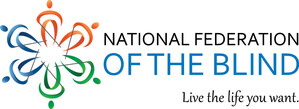Court Rules that National Conference of Bar Examiners Must Provide Individualized Testing Accommodations to Blind Law School Graduate
Ninth Circuit Court of Appeals Denies NCBE Motion to Stay Preliminary Injunction
SAN FRANCISCO, Feb. 24 /PRNewswire-USNewswire/ -- The Ninth Circuit Court of Appeals yesterday refused to stay a preliminary injunction requiring the National Conference of Bar Examiners (NCBE) to provide a blind law school graduate with the technology-based testing accommodations she needs to take two exams required to become a member of the State Bar of California. A federal judge had previously granted the preliminary injunction requiring the accommodations, but the NCBE appealed the ruling. The Ninth Circuit's ruling allows the plaintiff, Stephanie Enyart, to take the February 2010 Multistate Bar Examination (MBE) and March 2010 Multistate Professional Responsibility Examination (MPRE) on a laptop computer equipped with the assistive technology software Ms. Enyart relies upon for screen reading (JAWS) and screen magnification (ZoomText).
Dr. Marc Maurer, President of the National Federation of the Blind, said: "The court's action puts an end to Stephanie Enyart's year-long ordeal to get the accommodations she needs to take this crucial step in her chosen career. As we have said before, those who control admission to the practice of law must themselves obey the law."
The suit was filed on November 3, 2009, due to the NCBE's refusal, on multiple occasions during the past year, to allow Ms. Enyart to use the same technology on the MBE and MPRE that she has used on university and law school exams and in various jobs and internships. The suit charged that the NCBE violated the Americans with Disabilities Act (ADA) and California's Unruh Civil Rights Act by denying accommodations on the MBE and the MPRE.
NCBE had argued that it fulfilled its legal obligations to Ms. Enyart by offering alternative accommodations, such as a human reader, notwithstanding evidence that these alternatives did not, in fact, fully accommodate Ms. Enyart's disability. In rejecting NCBE's argument, the court's ruling paves the way for other individuals prevented from pursuing their professional dreams by high stakes testing providers who take a rigid approach to disability accommodations.
The plaintiff is represented with the support of the National Federation of the Blind by LaBarre Law Offices, P.C., in Denver, Colorado, and by Brown, Goldstein & Levy, LLP, in Baltimore, Maryland. The plaintiff is further represented by Disability Rights Advocates, a nonprofit law center that specializes in civil rights cases on behalf of persons with disabilities, based in Berkeley, California.
About the National Federation of the Blind
With more than 50,000 members, the National Federation of the Blind is the largest and most influential membership organization of blind people in the United States. The NFB improves blind people's lives through advocacy, education, research, technology, and programs encouraging independence and self-confidence. It is the leading force in the blindness field today and the voice of the nation's blind. In January 2004 the NFB opened the National Federation of the Blind Jernigan Institute, the first research and training center in the United States for the blind led by the blind.
SOURCE National Federation of the Blind
WANT YOUR COMPANY'S NEWS FEATURED ON PRNEWSWIRE.COM?
Newsrooms &
Influencers
Digital Media
Outlets
Journalists
Opted In




Share this article